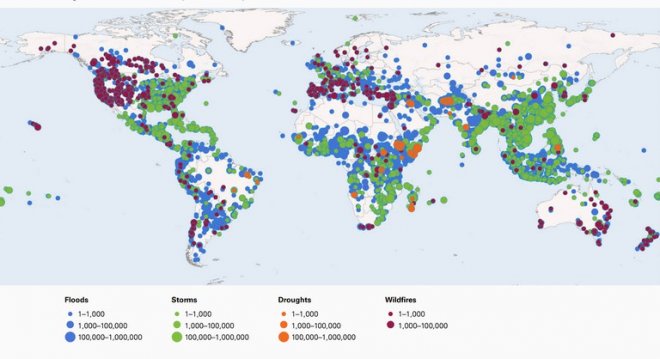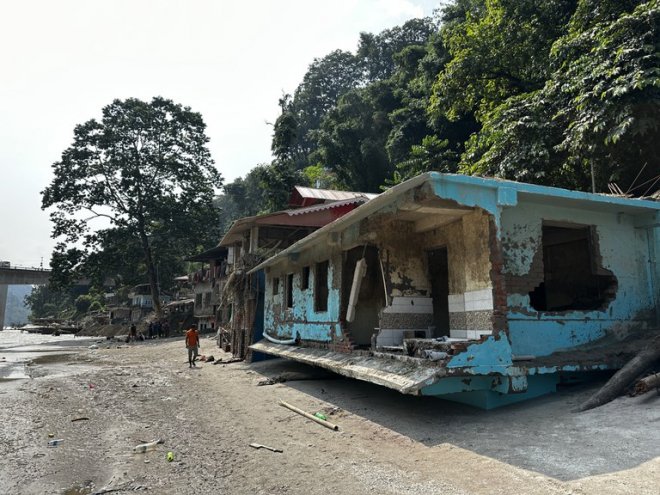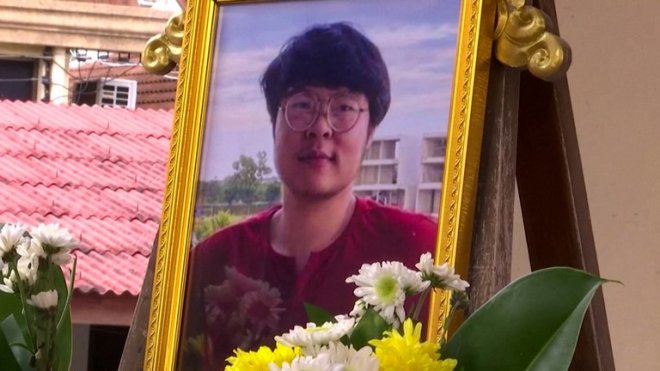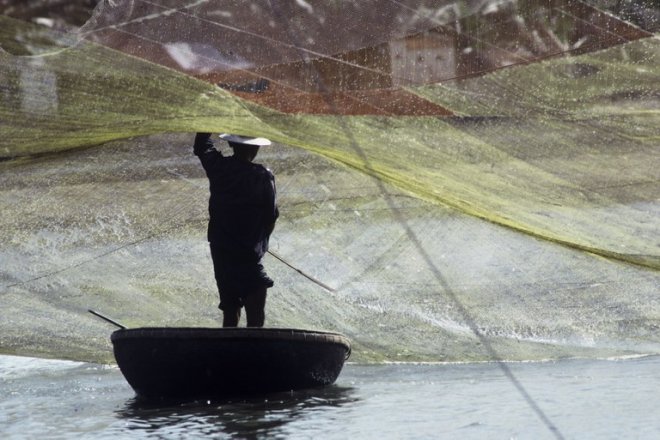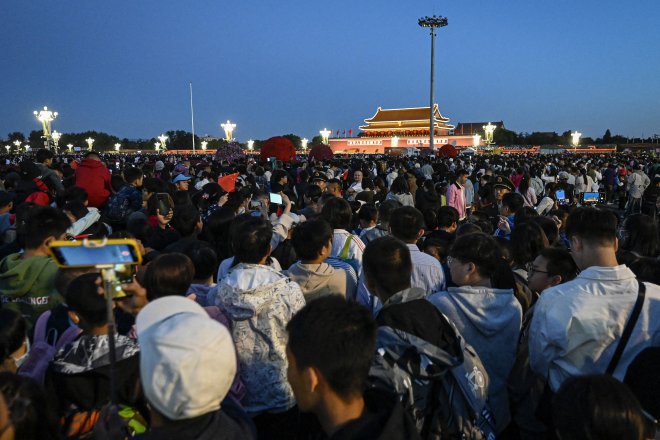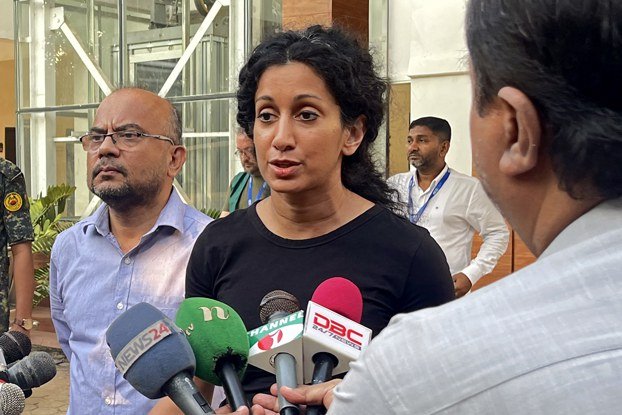Lao villagers arrested for protesting potash mine, later released
Authorities arrested and later released a small group of villagers in central Laos who were protesting a 35-square kilometer potash mine being developed by a company linked to the Chinese government, which has made acquiring new reserves of the fertilizer feedstock a top priority.
The residents of Nong Bok district in the Khammouane province say they haven’t been properly compensated by developer Sino Agri International Potash Co. for the loss of their homes and farms, a common complaint from locals who have been forced to give up residences and businesses to Laos’ infrastructure-heavy economic development efforts.
As many as five local residents were arrested and later released by authorities earlier this month, sources told RFA.
“They cleared all villagers’ land in the village,” one resident said in a Dec. 17 post on social media. “Villagers are not getting money yet. Is it right to do this? Villagers can do nothing with these people.”
RFA spoke with other residents, who confirmed that many in the community have not been compensated by Sino Agri, a subsidiary of Asia Potash, which has direct links to entities directed by China’s governing State Council.
“There are a lot of villagers suffering,” one source told RFA in a Dec. 19 interview. “In Nakham village, almost all of them are affected.”
The source said the company’s compensation came to about half of the value of their land.
“If they resist, they will go to jail, so villagers have to cooperate,” the source said.
A local official told RFA that the arrested villagers have been released.
The company did not return calls for comment.
Link to Chinese government
Asia Potash’s largest shareholder is China National Agricultural Means of Production Group Corp., which is a fully owned subsidiary of a company that itself is owned by the All China Federation of Supply and Marketing Cooperatives, which the State Council leads.
In a meeting this year, the council announced it was seeking to expand China’s access to potassium salt resources used to make fertilizer, including potash, a soluble form of potassium.
China is the world’s largest consumer of fertilizer. Canada, Russia and Belarus are the top producers of potassium, combining for about 68% of the world’s reserves.
China’s potassium resources in comparison are declining, and the State Council is looking to secure reliable supplies. Recent events appear to have validated China’s plan, as fertilizer prices spiked in the months following Russia’s invasion of Ukraine, raising fears of a food crisis.
Potassium production
Asia Potash has said it is looking to boost annual potassium production in Laos to 3-5 million metric tons, up from 1 million currently, in the next few years. About 72 million metric tons are annually produced worldwide.
Nong Bok residents say they are collateral damage in the global race for market share, forced to give up the land they occupied (private ownership of land doesn’t exist in Communist Laos) for years.
A third village source said the land was being confiscated if locals refused offers from Sino Agri.
“The Chinese company gets the concession of the villagers’ land to excavate potash mineral,” this source said. “Even though villagers are not giving [the land], they (company) still take it.”
Landlocked and poor, Laos is not without natural resources. But an internationally-financed push to develop the country’s assets has led to a number of local conflicts.
Compensation complaints
Villagers who have lost homes and businesses to hydropower plants Laos has pursued in its quest to become the “battery of Southeast Asia” have often complained that they didn’t receive proper compensation.
This month, Radio Free Asia reported that construction had begun on the U.S. $3 billion Luang Prabang dam on the Mekong River, even though final payments to displaced villagers have yet to be settled. More than 2,130 families in 23 villages will be relocated from Luang Prabang and Xayabury provinces for the project.
Sino Agri plans to greatly expand its capacity in the country and sell what it mines throughout Asia. In August, the company entered into an agreement with the government of Savannakhet province to develop an industrial park near a potassium salt mine that could reach 99 square kilometers in size.
The company’s potassium reserves in Laos exceed 1.1 billion metric tons, slightly more than China’s potential supply, according to the company.
Guo Baichun, the chairman of Asia Potash, listed a number of benefits of doing business in the country. These included cheap labor, little interference from local officials, inexpensive electricity, and the absence of mineral resource levies common in other countries.
Translated by Sidney Khotpanya for RFA Lao. Written in English by Jim Snyder.
[圖擷取自網路,如有疑問請私訊]
The residents of Nong Bok district in the Khammouane province say they haven’t been properly compensated by developer Sino Agri International Potash Co. for the loss of their homes and farms, a common complaint from locals who have been forced to give up residences and businesses to Laos’ infrastructure-heavy economic development efforts.
As many as five local residents were arrested and later released by authorities earlier this month, sources told RFA.
“They cleared all villagers’ land in the village,” one resident said in a Dec. 17 post on social media. “Villagers are not getting money yet. Is it right to do this? Villagers can do nothing with these people.”
RFA spoke with other residents, who confirmed that many in the community have not been compensated by Sino Agri, a subsidiary of Asia Potash, which has direct links to entities directed by China’s governing State Council.
“There are a lot of villagers suffering,” one source told RFA in a Dec. 19 interview. “In Nakham village, almost all of them are affected.”
The source said the company’s compensation came to about half of the value of their land.
“If they resist, they will go to jail, so villagers have to cooperate,” the source said.
A local official told RFA that the arrested villagers have been released.
The company did not return calls for comment.
Link to Chinese government
Asia Potash’s largest shareholder is China National Agricultural Means of Production Group Corp., which is a fully owned subsidiary of a company that itself is owned by the All China Federation of Supply and Marketing Cooperatives, which the State Council leads.
In a meeting this year, the council announced it was seeking to expand China’s access to potassium salt resources used to make fertilizer, including potash, a soluble form of potassium.
China is the world’s largest consumer of fertilizer. Canada, Russia and Belarus are the top producers of potassium, combining for about 68% of the world’s reserves.
China’s potassium resources in comparison are declining, and the State Council is looking to secure reliable supplies. Recent events appear to have validated China’s plan, as fertilizer prices spiked in the months following Russia’s invasion of Ukraine, raising fears of a food crisis.
Potassium production
Asia Potash has said it is looking to boost annual potassium production in Laos to 3-5 million metric tons, up from 1 million currently, in the next few years. About 72 million metric tons are annually produced worldwide.
Nong Bok residents say they are collateral damage in the global race for market share, forced to give up the land they occupied (private ownership of land doesn’t exist in Communist Laos) for years.
A third village source said the land was being confiscated if locals refused offers from Sino Agri.
“The Chinese company gets the concession of the villagers’ land to excavate potash mineral,” this source said. “Even though villagers are not giving [the land], they (company) still take it.”
Landlocked and poor, Laos is not without natural resources. But an internationally-financed push to develop the country’s assets has led to a number of local conflicts.
Compensation complaints
Villagers who have lost homes and businesses to hydropower plants Laos has pursued in its quest to become the “battery of Southeast Asia” have often complained that they didn’t receive proper compensation.
This month, Radio Free Asia reported that construction had begun on the U.S. $3 billion Luang Prabang dam on the Mekong River, even though final payments to displaced villagers have yet to be settled. More than 2,130 families in 23 villages will be relocated from Luang Prabang and Xayabury provinces for the project.
Sino Agri plans to greatly expand its capacity in the country and sell what it mines throughout Asia. In August, the company entered into an agreement with the government of Savannakhet province to develop an industrial park near a potassium salt mine that could reach 99 square kilometers in size.
The company’s potassium reserves in Laos exceed 1.1 billion metric tons, slightly more than China’s potential supply, according to the company.
Guo Baichun, the chairman of Asia Potash, listed a number of benefits of doing business in the country. These included cheap labor, little interference from local officials, inexpensive electricity, and the absence of mineral resource levies common in other countries.
Translated by Sidney Khotpanya for RFA Lao. Written in English by Jim Snyder.
[圖擷取自網路,如有疑問請私訊]
|
本篇 |
不想錯過? 請追蹤FB專頁! |
| 喜歡這篇嗎?快分享吧! |
相關文章
AsianNewsCast











